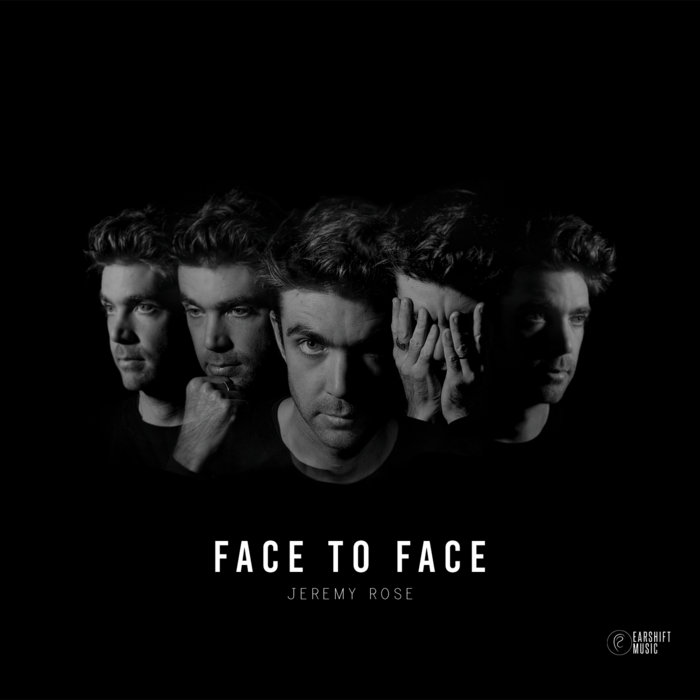The Vampires Nightjar
The Vampires Nightjar
The Vampires Nightjar:
Jeremy Rose (sax) (cl), Nick Garbett (tp), Noel Mason (b), Alex Masso (dr), Chris Abrahams (p) (org), release Mai 12, 2023
“Ein Surfer-Vibe durchdringt ihre Musik: entspannt und aufmerksam sein, in der Brandung einer großartigen, immensen Naturgewalt sitzen, bis die Welle kommt. Reite sie so anmutig und so weit wie möglich. (…) – The Vampires sind in ihre eigene Musik hineingewachsen, indem sie The Necks aufmerksam zugehört haben. Einzelne Mitglieder von The Vampires spielen mit einzelnen Necks: Tony Buck auf Nick Garbetts The Glider (2019) und Lloyd Swanton mit Jeremy Rose und Hamed Sadeghi in dem improvisierenden Trio Vazesh.”
Linernotes Bandcamp
Ein Raunen, ein Abwinken, ein Verstummen: wenn der Surfer kommt. Das ist der mit dem immer heiteren und breiten Lächeln, der mit der Ganzkörperbräune, wo nimmt er seine Heiterkeit bloß her, der Surfer. Nicht erst seit William Finnegan wissen wir, der Surfer im Neoprenanzug wartet mehr als dass er surft, er schwebt über Wasserschichten scheinbar, und was aussieht wie Sonnyboy auf Urlaub, ist in Wahrheit ein Kampf gewesen gegen das Gnadenlose und Unberechenbare dieser Wassermassen mit ihren Wellen, und eine davon hätte die beste aber auch die letzte sein können.
Das Existentielle dieser Sportart bleibt im Neoprenanzug stecken, wenn das Wellenbrecherspiel zurück am Strand bleibt, der Schrecken, dabei fast draufgegangen zu sein, kommt mit, nie wieder, könnte es heißen und doch geht es ein weiteres Mal hinaus, auf dem Brett liegend, nachzulesen in den Barbarentagen von William Finnegan, auf Englisch: Barbarian Days von 2016.
Von der Besessenheit oder Obsession auf, in und über dem Wasser erzählt das Buch, die vorliegende Aufnahme scheint vom ersten Ton an ein anderes Thema zu haben: die eigenen Wellenbrecherformationen, da ist im ersten Anschlag dieser knurrig murrende Ton, in einer sich gemächlich herantastenden Bewegung, nicht wirklich heiter und beschwingt, eher verhalten abwartend.
Auf Game Changers folgt ein Reggae, Kahn Shatyr (ein transparentes Riesenzelt in Astana ?!), auch der Song zeugt von einer eher abwartenden Haltung – wenn das die Erzählerperspektive eines Surfers ist, scheint der Sonnyboy eher ein introvertierter Typ zu sein, das dritte Stück Waves, ebenfalls gemächlich und abwartend, scheint noch nicht die Welle an sich zu erwarten, sondern ist wieder auch das Abwarten und Antizipieren an sich, nur in Teilen wächst dort etwas heran.
Auch das Warten und Treibenlassen kann davontreiben –
Nehmen wie einmal an, dass, was transzendent sein will, was also irgendwo im Jenseits möglicher Erfahrung liegt, trotzdem Herausforderung oder Ambition bleibt, das Abwarten und auf den Wellen Mitschwingen ist auch im Reggae Ortigara zu spüren – Ortigara ist ein Berg in Italien, auf dem sich 1917 die Ortigara-Schlacht zutrug.
Etwas verwirbelter kommt Ortigara Interlude auf uns zu – ein Zwischenspiel, kein Vorspiel. In Erwartung eines Konzeptalbums zum Thema Surfen und Wellengang wird eine darüber hinaus weisende Sicht lesbar: Das sind zehn verschiedene Songs mit jeweils eigener Erzählung von ganz verschiedenen Orten und Ereignissen weltweit. Wir haben Astana, das große Zelt, wir haben das Titelstück Night Jar, ein Nachtvogel. Na Pali scheint mit der heiteren Seite zu liebäugeln, ist, wie es in den Liner Notes heißt, von den dramatischen Klippen und Felsvorsprüngen der Küste der hawaiianischen Insel Kauai inspiriert.
Die High Plains sind ein Trockengebiet in den USA auf 750 bis 1800 Höhenmeter über Normalnull, hier geht es aber umgekehrt tief hinunter, gespielt von der Bassklarinette und einem dröhnenden Bass, es schwingen jenseits der transzendental überhöhten Erwartungshaltungen die Untiefen der Gegenwellen mit Sog, Unterspülung und Verkehrung der Perspektiven mit, im luftflirrenden Spiegelflimmern.
Könnte auch sein, dass es nicht um den Sonnyboy geht als Taucher oder Surfer, sondern um einen, den es nicht mehr gibt. Umso erstaunlicher als Evergreen plötzlich von der Rolle ist und forsch die Steilküste entlangkommt.
Night Jar, das Titelstück, gibt uns sieben Minuten, das Geheimnis um die Gesamtkomposition zu lüften, wir lesen bei den anderen nach, bei Jazzwize handelt es sich um eine Musik, die sich selbst nicht allzu ernst nimmt. Bei Allaboutjazz lesen wir von Up-Beat und Reggae-Einflüssen, regiert von der excellenten und ausgefeilten Kommunikation untereinander, da Lyrisches und Rhythmisches in einer perfekten Balance zueinander stehen.
Die Liner Notes erzählen von der Vorliebe der Vampire Mitglieder für das australische Cult-Trio The Necks, eine über Jahrzehnte agierende Band des Minimalismus, mit dem die Mitglieder der Vampires je an anderen Projekten zusammenspielten. Und wenn wir das alles summieren und gleich auch abstrahieren, kommen wir zu keinem anderen Ergebnis als zuzugeben, dass uns die Liner Notes verführt haben, etwas zu suchen in diesen zehn Stücken, was die Musik nur subtil transportiert, da wir es aber gesucht haben, transportiert sie all das offenbar mit.
Ein doppelt raffiniertes Album gut komponierter und stilistisch überzeugender Songs einer Band, die seit 2005 mit jedem ihrer Alben zu überzeugen wusste und auch jetzt mit Nightjar, dem Nachtvogel, viel Licht wirft in die dunklen Tage unserer Zeit. Man muss sich die Welt eben in Echtzeit vorstellen und in Echt darstellen, dann fällt es auch mit der Transzendenz oder der Metaphysik nicht zu schwer, sie etwa wichtiger zu nehmen als sie jeweils ist. Real betrachtet sieht man das alles nämlich nicht. Surreal bespiegelt ergeben sich daraus zehn weitere Stories.
Und weil es so schön war – das Ganze noch einmal aus der Perspektive Pacifica aus dem Jahr 2019.
The Vampires Nightjar
English Version
“A surfer vibe infuses their music: being at ease and alert, sitting in the swell of a magnificent immense natural force, until the wave comes. Ride it as gracefully and as far as possible. (…) The Vampires grew into their own music listening intently to The Necks. Individual members of The Vampires play with individual Necks: Tony Buck on Nick Garbett’s 2019 The Glider; and Lloyd Swanton with Jeremy Rose and Hamed Sadeghi in the improvising trio Vazesh.”
A murmur, a wave, a hush: when the surfer comes. That’s the one with the always cheerful and broad smile, the one with the full-body tan, and where does he get his cheerfulness from, the surfer. Not only since William Finnegan have we known that the surfer in the wetsuit waits more than he surfs, he seemingly floats over layers of water, and what looks like a sonny boy on holiday has in fact been a battle against the merciless and unpredictable of these water masses with their waves, and one of them could have been the best but also the last.
The existential of this sport remains stuck in the wetsuit when the breakwater game remains back on the beach, the horror of almost getting killed in the process comes with it, never again, it could be said, and yet it goes out one more time, lying on the board, to be read in William Finnegan‘s Barbarian Days from 2016.
The book tells of the obsession on, in and above the water, the present recording seems to have a different theme from the first note: one’s own breakwater formations, there is this growling grumbling sound in the first stroke, in a leisurely approaching movement, not really cheerful and elated, rather cautiously waiting.
Game Changers is followed by a reggae, Kahn Shatyr (a transparent giant tent in Astana!?), the song also shows a rather waiting attitude – if this is the narrator’s perspective of a surfer, the Sony boy seems to be rather an introverted type, the third piece Waves, also unhurried and waiting, does not seem to be waiting for the wave itself yet, but is again also waiting and anticipating in itself, only in parts something is growing there.
Waiting and drifting can also drift away –
Let’s assume that what wants to be transcendent, what lies somewhere in the beyond of possible experience, nevertheless remains a challenge or ambition, the waiting and swinging along on the waves can also be felt in Reggae Ortigara – Ortigara is a mountain in Italy where the Ortigara battle took place in 1917.
A little more swirling, Ortigara Interlude comes at us – an interlude, not a prelude. Expecting a concept album on the theme of surf and swell, a view pointing beyond becomes legible: these are ten different songs, each with its own narrative of very different places and events around the world. We have Astana, the big tent, we have the title track Night Jar, a night bird. Na Pali seems to flirt with the serene side, is inspired, as the liner notes say, by the dramatic cliffs and rocky outcrops of the coast of the Hawaiian island of Kauai.
The High Plains are an arid region in the USA at 750 to 1800 metres above sea level, but here it goes down deep, played by the bass clarinet and a booming bass, the shallows of the counterwaves resonate beyond the transcendentally inflated expectations with suction, undermining and reversal of perspectives, in the air-shimmering mirror flicker.
It could also be that it’s not about the Sonnyboy as a diver or surfer, but about someone who no longer exists. All the more astonishing when Evergreen is suddenly off the roll and comes briskly along the cliff.
Night Jar, the title track, gives us seven minutes to unravel the mystery of the overall composition, we read up on the others, for Jazzwize it is music that doesn’t take itself too seriously. With Allaboutjazz we read about up-beat and reggae influences, ruled by the excellent and polished communication between each other, as lyrical and rhythmic are in a perfect balance.
The liner notes tell of the Vampires members’ fondness for the Australian cult trio The Necks, a band of minimalism that has been around for decades, and with whom the members of the Vampires have ever collaborated on other projects. And if we add it all up and abstract it at the same time, we come to no other conclusion than to admit that the liner notes have seduced us into looking for something in these ten pieces that the music only subtly conveys, but since we were looking for it, it obviously conveys all that as well.
A doubly refined album of well-composed and stylistically convincing songs by a band that has been convincing with each of its albums since 2005 and now, too, with Nightjar, the Nightbird, throws a lot of light into the dark days of our time. You have to imagine the world in real time and portray it in reality, then it’s not too difficult to take transcendence or metaphysics more seriously than they actually are. Seen in real life, you don’t see all that. Surreally reflected, this results in ten more stories.
And because it was so nice – the whole thing again from the perspective of Pacifica from the year 2019.
Jeremy Rose (sax) (cl), Nick Garbett (tp), Noel Mason (b), Alex Masso (dr), Chris Abrahams (p) (org)
Also from Australia


